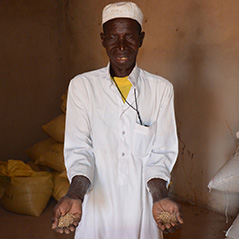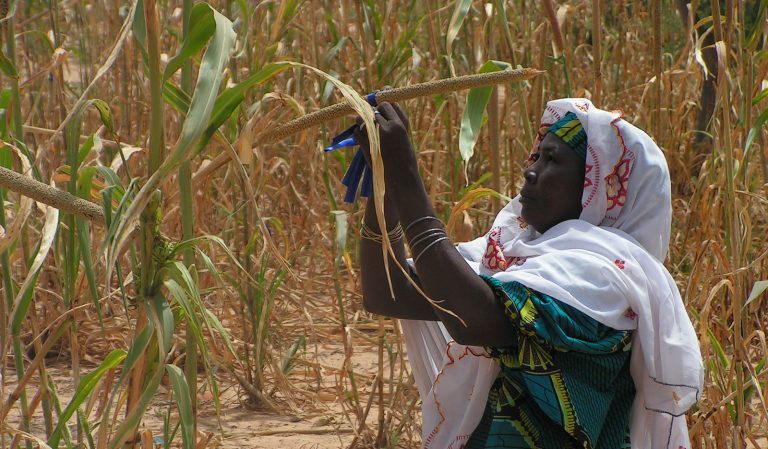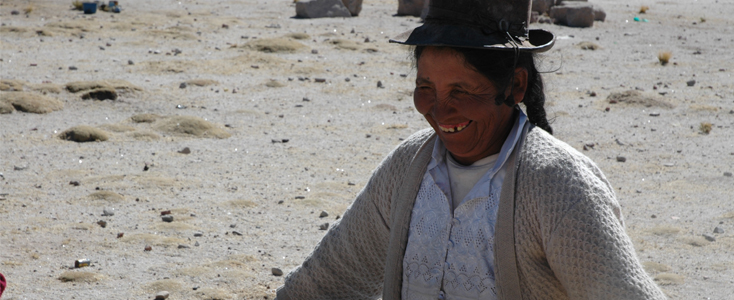International Crops Research Institute for the Semi-Arid Tropics (ICRISAT) is an international nonprofit organization that conducts agricultural research for development in Asia and sub-Saharan Africa with a wide array of partners throughout the world. Covering 6.5 million square kilometers of land in 55 countries, the semi-arid tropics have over 2 billion people, 644 million of them in extreme poverty. ICRISAT aims to improve the livelihood of these people through innovative agricultural research, increasing access to nutritious food and helping farmers make a sustainable living.
“If you have good seeds, you will be ahead of the game,” says Souleman Ballo, a respected elder from Mpessoba, a village located along the road between Segou and Koutiala, in South Mali. A 62-year-old farmer, head of a 25 member household, and president of the local farmer cooperative Jigi Seme, Souleman knows how important good seeds are for the farmer’s wealth. The cooperative, made up of 65 families, produces sorghum and maize, and legumes like cowpea. They have recently secured a contract from the World Food Programme’s Purchase for Progress scheme to sell sorghum grain. They are also engaged in producing quality seeds including new sorghum hybrids.
 80% of Malians rely on low yielding agriculture for their livelihood, often jeopardized by unpredictable rains, poor soils, and limited access to productivity enhancing inputs. Most farmers have daily incomes of less than $2, so access to better seeds is often the most promising first step to boost harvests and food security in sub-Saharan Africa.
80% of Malians rely on low yielding agriculture for their livelihood, often jeopardized by unpredictable rains, poor soils, and limited access to productivity enhancing inputs. Most farmers have daily incomes of less than $2, so access to better seeds is often the most promising first step to boost harvests and food security in sub-Saharan Africa.
Agricultural researchers at ICRISAT and the Malian Institut d’Economie Rurale have developed many improved varieties of sorghum and millet, with some remarkable yield gains. For instance, new sorghum hybrids based on well-adapted local varieties, are giving yields 40% higher than the farmers’ best local variety. Souleman was even reporting record yields over three tons per hectare in the best fields when usually farmers harvest one ton or less. This yield increase is life-changing as sorghum is vital for food and income.
Ensuring these improved varieties and hybrids are available to, and adopted by farmers is the next task. Malian farmers are not in the habit of buying seeds. “A good farmer produces his or her own seeds,” as Souleman puts it. This does not mean farmers do not try new seeds. In fact, they regularly test new varieties by obtaining seed through informal means, especially with family and close neighbors.
Supporting decentralized seed production and marketing by local farmer seed cooperatives therefore suits farming communities in Mali. Where cooperatives operate, there is an impressive rate of adoption of improved cultivars. A recent study showed that adoption was 25 to 50% in the villages where the seeds were produced, compared to the national average around 10 percent. Souleman tells us that Jigi Seme produced one ton of sorghum hybrid seeds in 2014 and sold it all in 1 to 5 kg bags (enough seeds to sow up to one hectare). He expects even greater success in 2015.


